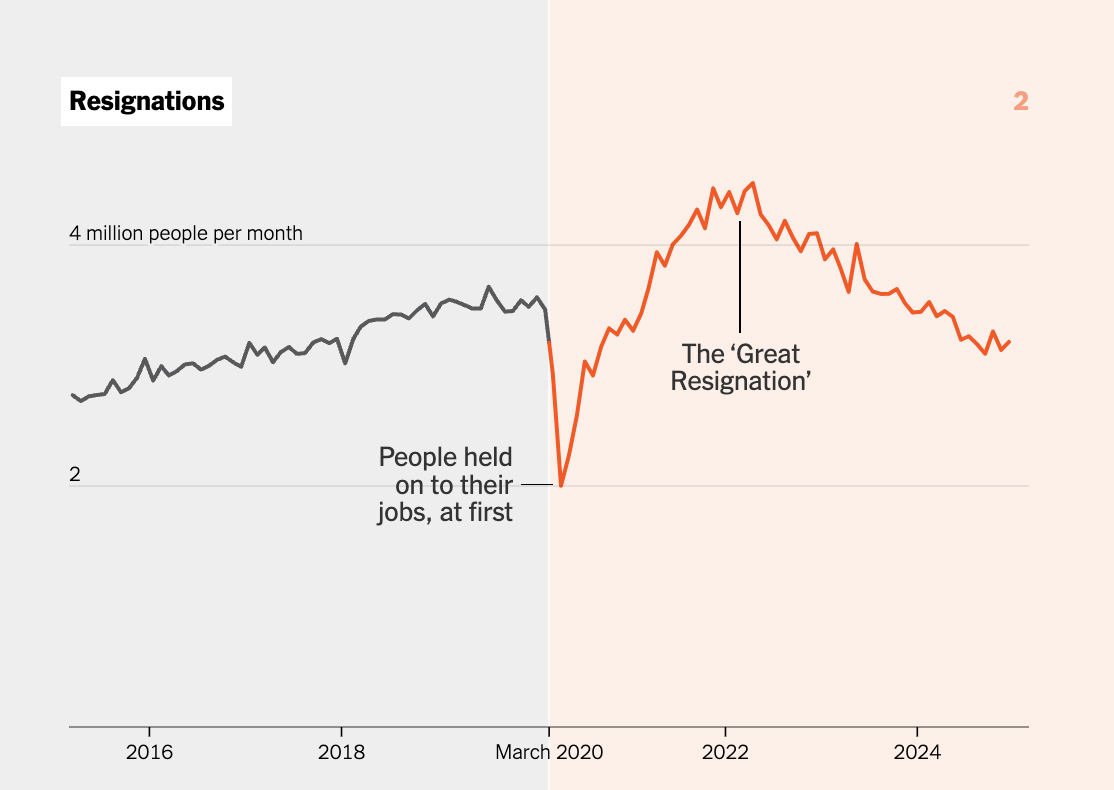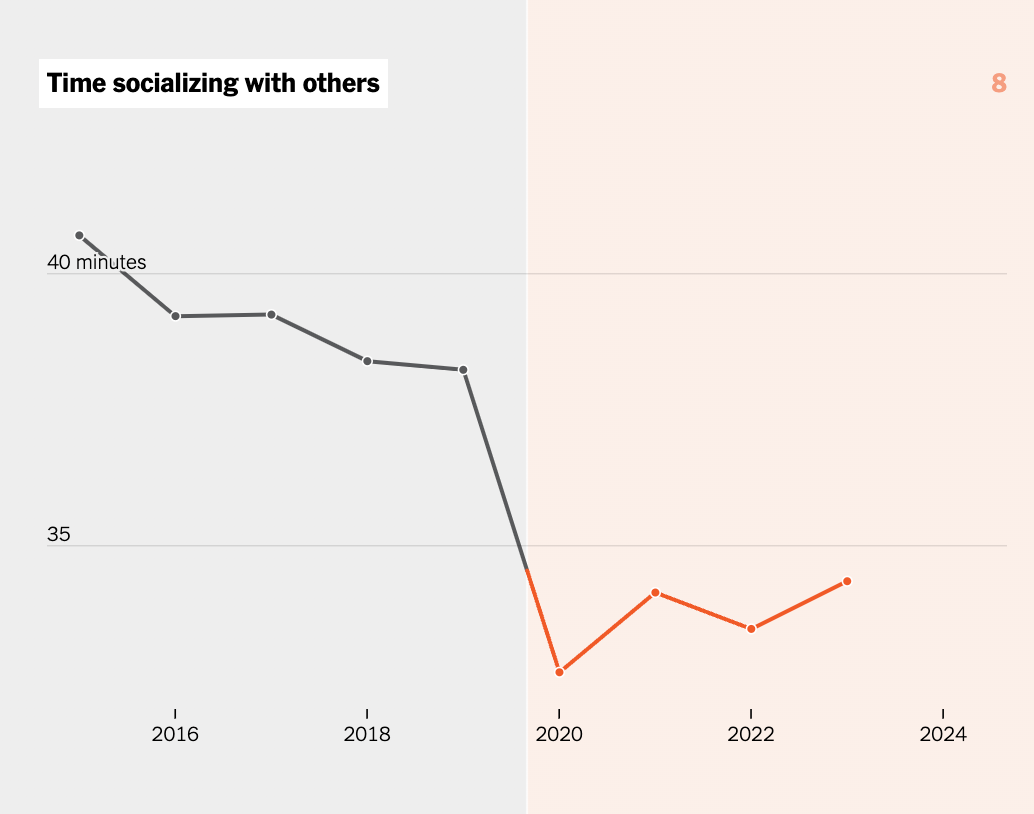
This year the Edelman Trust Barometer reached its 25 year anniversary. The world looked very different at the Millennium, the only thing you could read on your phone was a 160 character text message and most of us still got our news and entertainment from mass media outlets. In recent years Edelman’s report has told us that the biggest thing that most of us trust is our companies. Or at least we used to, but things have got a lot worse.
The 2025 report paints a picture of declining trust and increasing anger. Instead of trust, Edelman found anger. Anger with government, anger with institutions and anger with our companies. Edelman describe it as a ‘crisis of grievance’. This sense of grievance is a loss of faith in leaders. For those struggling most in society there is a conviction that the system isn’t fair and other people are exploiting them. Edelman’s data is instructive for some the trends that we see reflected in the news. The findings are often uncomfortable reading:
Half of all white people in the US believe they are being discriminated against
Globally two-thirds of respondents felt that the rich “don’t pay their fair share”
Across all races and genders there is a universal sense that “I am getting screwed”
Over half of the respondents say capitalism doesn’t work
53% of 18-35 year olds endorse violence as a means to an end
Business used to be the only thing that was trusted. Now business has a seen a drop in trust amongst the highly aggrieved. Trust in CEOs has dropped to 30% amongst those with the biggest sense of grievance.
It begs the question of what any of us can do to beat this? The report acknowledges that trust starts locally. Even if we don’t trust CEOs in general we’re significantly more likely to trust our CEO. In a society riddled with a lack of trust, we can build it in our teams and our organisations.
Research from Wharton says that the things that build trust are warmth, integrity and competence. Warmth is about showing a human connection, building empathy, showing that you are human. Integrity is about doing the right thing. Making sure that your behaviour is aligned with your words.
The competence element can’t be underestimated. It’s why political commentators often observe that newly elected leaders need to focus on delivering results. As the saying goes trust is built by ‘doing what you say you will do, when you say you will do it’.
Professor Paul Zak is an expert on trust. His work suggests that when organisations get this right the benefits are off the charts. He found that when team members experience high levels of trust, they are 74% less stressed, and they report feeling 106% more energy at work. They are 76% more likely to feel engaged and their productivity is 50% higher. What happens to people’s work innies also benefits their outies at home. Workers in high-trust teams are 29% happier with their overall lives and life experience 40%.
We’re living through a crisis of trust in every area of our lives. The question is no longer who we trust—but how we earn it back. And for many of us, that work starts right now.
Want more?
Listen to the podcast about last year’s report,
Check out the Edelman Trust Barometer website
“Every single person assumes that the intellectual framework they grew up with is natural, normal, inevitable and should be universal. And everyone is wrong” - anthropologist Gillian Tett (see more below)
Is firing managers the way to beat bureaucracy? Amazon is reported to have slashed a layer of management, firing 14,000 in an attempt to purge the organisation of red tape and reporting
Is coding the first sign of what AI is going to do to jobs? A quarter of all programmer jobs have vanished in the last two years reports the Washington Post
Right now in work if you’re not learning, you’re disappearing: The World Economic Forum published a report on the Future of Jobs. Hidden in all of the detail is the fact that workers can expect 39% of their existing skill sets to become obsolete in the next five years.
The New York Times ran a fabulous set of charts documenting what has changed since the Pandemic. It’s clearly US data but the graphics speak to societal changes that are global. Not mentioned is the fact that millions of people still have long Covid that has an enduring effect on them - there are 2 million sufferers in UK alone.
Headspace released a report into wellness at work saying that 58% of us have considered quitting a job because of its impact on our mental health.
An overwhelming amount of new content this week reflecting on society. Yes, Gareth Southgate’s Dimbleby Lecture about culture and the challenges facing young men was worth watching, and it certainly worked as a strong partner piece to the jaw-droppingly good Adolescence on Netflix in the debate about young men. But beware of simple answers to complicated problems. Last month a scientific study into banning mobile phone bans in schools found there was no evidence to support bans. (Southgate talks about resilience being about identity, connection and culture - I strongly agree with that model and have written about it).
For me the biggest issue in work right now is a long way from the workplace. The issue is that there hasn’t been real wage growth in most people’s jobs in the last 10 years. This has a huge knock-on effect. No one feels like they have spare money - meaning that we don’t eat out, we’re not holidaying as much, we don’t go for a drink with colleagues, we can’t even afford to go into the office. Everything in life feels hard. So it might not immediately feel work culture related but from the field of economics there are a couple of things I loved this week - that go some way to explaining that situation:
Ezra Klein’s interview with anthropologist Gillian Tett spawned the quotation at the start of the post. She talks about Trump’s economic policy with a freshness I’ve not heard anywhere else. Klein always asks for a book recommendation which leads to her pointing listeners in the direction of David Graeber’s Debt: The First 5000 Years. Tett summarises the lesson of Graeber’s book by saying that to understand societal power structures, you need to understand who controls the debt in the economy.
This is entirely consistent with the messaging of broker-turned-economist Gary Stevenson. Stevenson has ascribed his success as a broker to his clear-eyed view that the biggest problems in society are down to the inequality of wealth. We often see the consequences of this, without necessarily seeing the causes. When the median rent in London is 54% of salary it doesn’t allow workers to do much else with their earnings other than make rent. Stevenson is in elite form talking about this on this vlog this week. I tend to prefer it in podcast format. (I really don’t recommend his bestselling book btw. It starts off as a caper about becoming a working class broker and ends up like your millionaire friend telling you about their HR grievance for 4 hours).
The podcast isn’t dead. It was just resting. I had a brilliant discussion about micro-cultures and when a manager needs to be a little subversive as a means of protecting their people. Patricia Grabarek and Katina Sawyer talked a lot about building a great culture for your team even if your firm isn’t focussed on it. Leading for Wellness is out next week.














Rebuilding trust - the bedrock of successful human collaboration - is so much harder, and more expensive, than building trust in the first place. Disheartening that we still need to talk about this in 2025.
The crisis of purpose in companies is real—employees crave meaning, not just a paycheck. Great insights on how organizations can address this challenge!